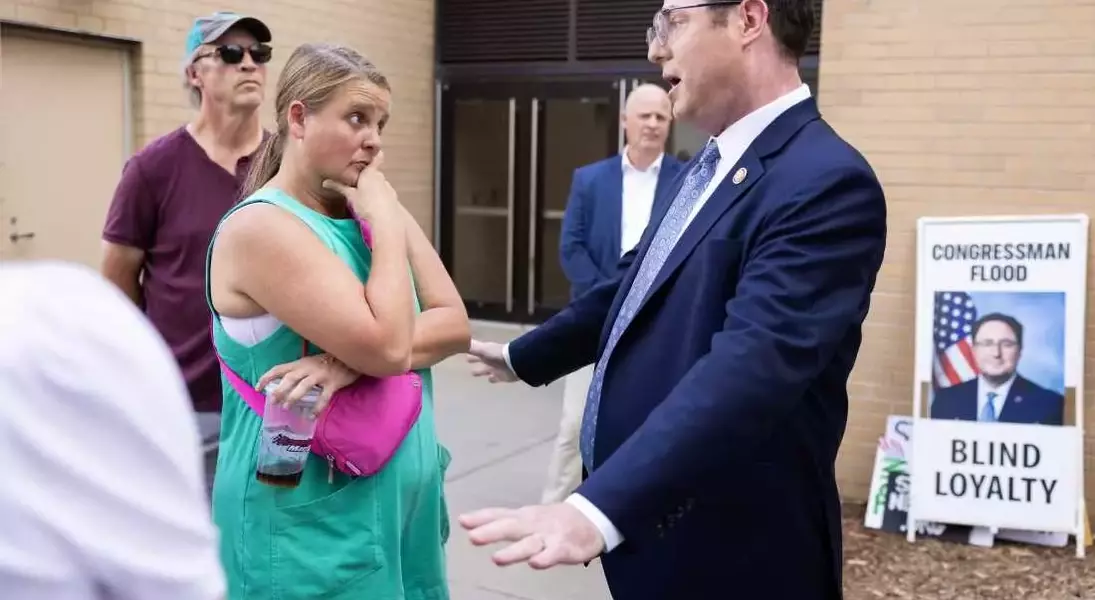
During a recent public gathering in Lincoln, Nebraska, Representative Mike Flood encountered a passionate outpouring of dissent from his constituents. The focus of their frustration was his unwavering endorsement of President Trump's sweeping legislative package, dubbed the 'One Big Beautiful Bill.' Attendees, numbering over 700, voiced profound concerns regarding the potential impact of this bill on crucial social safety net programs, most notably Medicaid, and openly challenged the administration's controversial immigration policies. Despite the chorus of boos and chants of 'Vote him out!' that punctuated the event, the second-term Republican maintained a composed demeanor, steadfastly defending his legislative stances.
In a subsequent interview, Congressman Flood reflected on the heated town hall, acknowledging the 'cathartic' nature of such public forums for citizens to express their views. He underscored the necessity for elected officials to engage directly with their communities, clarifying their legislative decisions and dispelling inaccuracies. Flood specifically addressed the modifications to Medicaid within the Trump administration's tax and spending framework, asserting that these changes target only those who are 'able-bodied' and 'choose not to work,' thereby preserving the safety net for the genuinely vulnerable. He also articulated his rationale for supporting the President's tariff policies, expressing optimism about their potential to stimulate economic growth in Nebraska.
The spirited exchange at the town hall, though challenging, highlights a vital aspect of democratic governance: the direct accountability of elected representatives to the people they serve. It underscores the importance of an informed and engaged citizenry, willing to voice their opinions and hold their leaders to account. This public discourse, however uncomfortable it may be at times, is fundamental to a healthy democracy, fostering transparency and ensuring that the diverse perspectives of the populace are considered in the legislative process. By participating in such forums, both politicians and citizens contribute to a more robust and responsive system of governance, striving towards a future where policies truly reflect the needs and aspirations of all.
